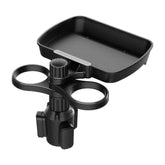The Ultimate Guide to Face Masks in Skincare
In the realm of skincare, face masks have emerged as essential tools, offering targeted treatments for various skin concerns. This comprehensive guide delves into the world of face masks, exploring their benefits, types, and how to select the best one for your skin type.

Understanding the Importance of Face Masks in Skincare
Face masks are formulated to deliver concentrated active ingredients, providing immediate and noticeable results. They can address issues such as hydration, pore congestion, and uneven skin tone, enhancing the overall health and appearance of your skin.
Key Benefits:
-
Deep Cleansing: Face masks can remove impurities and excess oils, leading to clearer skin.
-
Hydration: Certain masks provide intense moisture, revitalizing dry and dull skin.
-
Exfoliation: Some masks contain exfoliating agents that remove dead skin cells, promoting a smoother complexion.
For a detailed overview, refer to this Wikipedia article on facial masks.
Popular Types of Face Masks
Choosing the right face mask depends on your skin's needs. Here are some common types:
1. Sheet Masks
Thin sheets soaked in serums, designed for hydration and brightening. Ideal for dry or combination skin.
2. Clay and Mud Masks
Rich in minerals, these masks absorb excess oil and purify pores, making them suitable for oily and acne-prone skin.
3. Cream Masks
Cream-based masks provide deep hydration and nourishment, perfect for dry and sensitive skin.
For more insights, check out this Real Simple article on sheet masks vs. rinse-off masks.

Choosing the Right Face Mask for Your Skin Type
Selecting a face mask that aligns with your skin type is crucial for optimal results.
Oily and Acne-Prone Skin
Opt for clay or mud masks containing ingredients like salicylic acid to control oil production and prevent breakouts.
Dry Skin
Hydrating masks with ingredients such as hyaluronic acid or glycerin can replenish moisture levels.
Sensitive Skin
Choose masks with soothing ingredients like aloe vera or chamomile to calm irritation.
Vogue's selection of the best face masks for various skin concerns offers valuable recommendations.
How to Incorporate Face Masks into Your Skincare Routine
Integrating face masks into your skincare regimen can enhance its effectiveness.
Steps:
-
Cleanse: Start with a gentle cleanser to remove dirt and makeup.
-
Exfoliate: Use a mild exfoliant to eliminate dead skin cells, allowing better absorption of the mask's ingredients.
-
Apply Mask: Evenly apply the chosen mask, following the product's instructions.
-
Relax: Leave the mask on for the recommended time, usually 10-20 minutes.
-
Rinse and Moisturize: After removing the mask, apply a suitable moisturizer to lock in the benefits.

Conclusion
Face masks are versatile additions to any skincare routine, offering solutions tailored to specific skin needs. By understanding your skin type and concerns, you can select masks that enhance your complexion's health and radiance.
Key Takeaways:
-
Identify your skin type to choose the most effective mask.
-
Incorporate masks into your routine 1-2 times a week for optimal results.
-
Always follow up with a moisturizer to maintain skin hydration.
For more information on facial masks, visit this Wikipedia page.
Enhance your skincare routine with high-quality face masks from DealsByPalms! Whether you need deep hydration, oil control, or a rejuvenating glow, our collection has the perfect mask for you.

FAQs
Q1: How often should I use a face mask?
A: Depending on your skin type and the mask's purpose, 1-2 times per week is generally recommended.
Q2: Can face masks replace my daily moisturizer?
A: No, face masks are supplementary treatments and should not replace daily moisturizers.
Q3: Are natural face masks better than synthetic ones?
A: Both can be effective; the key is to choose masks with ingredients suitable for your skin type.










































Leave a comment
Please note, comments need to be approved before they are published.